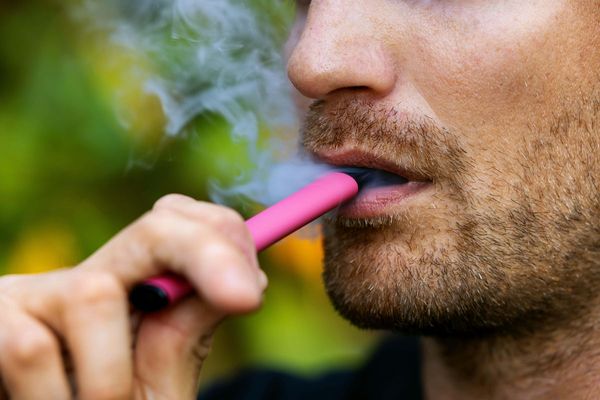
If a video of Bruce Lehrmann strangling a puppy were to emerge at this point, Federal Court Justice Michael Lee would refuse to watch it. He is done with this circus, and there is nothing more he would want to hear before rendering judgment on Lehrmann’s claim that Network Ten defamed him.
Lee may perhaps regret allowing Network Ten to reopen its defence last week. His increasing discomfort with the depth of the case’s “rabbit hole” was a fair indicator that the drugs, sex workers and sheer grubbiness of Lehrmann’s dealings with Seven Network probably aren’t going to make a big difference to the completion of his specific task.
It’s worth reminding ourselves that Lehrmann v Network Ten (and Lisa Wilkinson) is not a royal commission but a civil defamation case that raises several precise questions.
First, did Wilkinson’s interview of Brittany Higgins, broadcast on Ten’s The Project, in which she detailed her alleged rape, identify Lehrmann as the alleged perpetrator? He wasn’t named, so the judge has to determine whether the audience would have known (or worked out) who Higgins was accusing. If no, Lehrmann loses. But I think it’s going to be yes.
As to whether the program defamed Lehrmann, there is no possible doubt; a rape allegation is self-evidently defamatory.
The case turns on Ten’s defences, where the vast bulk of Lee’s (undoubtedly) very long judgment will focus. One of them, qualified privilege, will fail, because it always does for media publishers. That’s why it’s been effectively superseded by the new, more powerful public interest defence, but that didn’t exist when The Project went to air.
Which leaves the real defence: truth. Ten has the onus of proving, on the balance of probabilities, that the principal allegation against Lehrmann it broadcast — that he raped Higgins — is substantially true. If it succeeds in this, it wins the case.
The case has been described as a rape trial on the lower civil standard of proof (it is way easier to prove something on the balance of probabilities than to the criminal standard of beyond reasonable doubt). It’s not quite that simple, however.
When a court deals with an allegation of serious wrongdoing, such that a positive finding would be detrimental to the alleged wrongdoer, the law applies the so-called Briginshaw standard. It comes from an old English case, and basically says that the more serious the allegation, the more “exacting” the standard of proof the court should require.
In application to this case, it means Lee’s task is not as simple as deciding which of Lehrmann’s or Higgins’ versions of the relevant events he prefers and then deciding the case accordingly. He has to be positively persuaded that the allegation is true.
For one thing, if the judge were to accept everything Ten alleged last week — that Lehrmann did all those repulsive things, including handing to Seven masses of evidence he had acquired via his criminal trial (which would be a criminal contempt of court) and lying about it under oath in the defamation trial — that wouldn’t be enough to conclude that he is a rapist.
More importantly, if Lee finds Lehrmann was a comprehensively bad witness and doesn’t believe anything he said, that won’t necessarily translate to an automatic win for Ten.
The possible scenarios are these.
The first is Lee disbelieves Lehrmann, believes Higgins at least on the substance of her allegation that Lehrmann raped her, and therefore upholds the truth defence.
The second is the judge believes Lehrmann’s denials, notwithstanding what else he thinks about his evidence, and Lehrmann wins because he was unjustifiably defamed.
The third — less recognised but entirely possible — outcome is Lee disregards Lehrmann’s evidence altogether, but is not persuaded to the requisite standard (essentially, by Higgins) that the allegation has been established. If so, Lehrmann wins.
A precedent to this happened in the Ben Roberts-Smith case. Although he lost, because the judge found the major allegations of war crimes including murder to be true, there was one allegation that the judge found had not been established.
This was that Roberts-Smith had bashed his girlfriend at the time. The judge determined Roberts-Smith was a liar and didn’t believe his evidence. However, he also had serious doubts about the alleged victim’s testimony, such that he wasn’t convinced the assault allegation was true.
The same could hypothetically happen for Lehrmann if his barristers’ challenge to Higgins’ credibility finds favour to a sufficient extent that Lee isn’t comfortable accepting her rape allegation as true.
I have no idea how Lee will go on this; he has had a huge task of sifting through the contradictions to determine whether the allegation gets over the line.
The final point is that even if Lehrmann wins, he may well still lose. Ten pressed hard last week on its claim that he is the definition of an unmeritorious plaintiff. Defamation damages compensate for actual loss: hurt feelings and lessened reputation. As Lee remarked during the hearing, it is open to him to award Lehrmann nominal damages — the “lowest coin in the realm” — if he thinks that’s all he deserves.
If that happens, Lehrmann will likely also cop an order to pay Ten’s and Wilkinson’s costs. Victories don’t come more pyrrhic than that.
The curtain will soon fall. Regardless of whose head he brings it down on, Justice Lee deserves our thanks for conducting a manifestly fair — and, critically, transparent — hearing of this awful, wasteful case.







